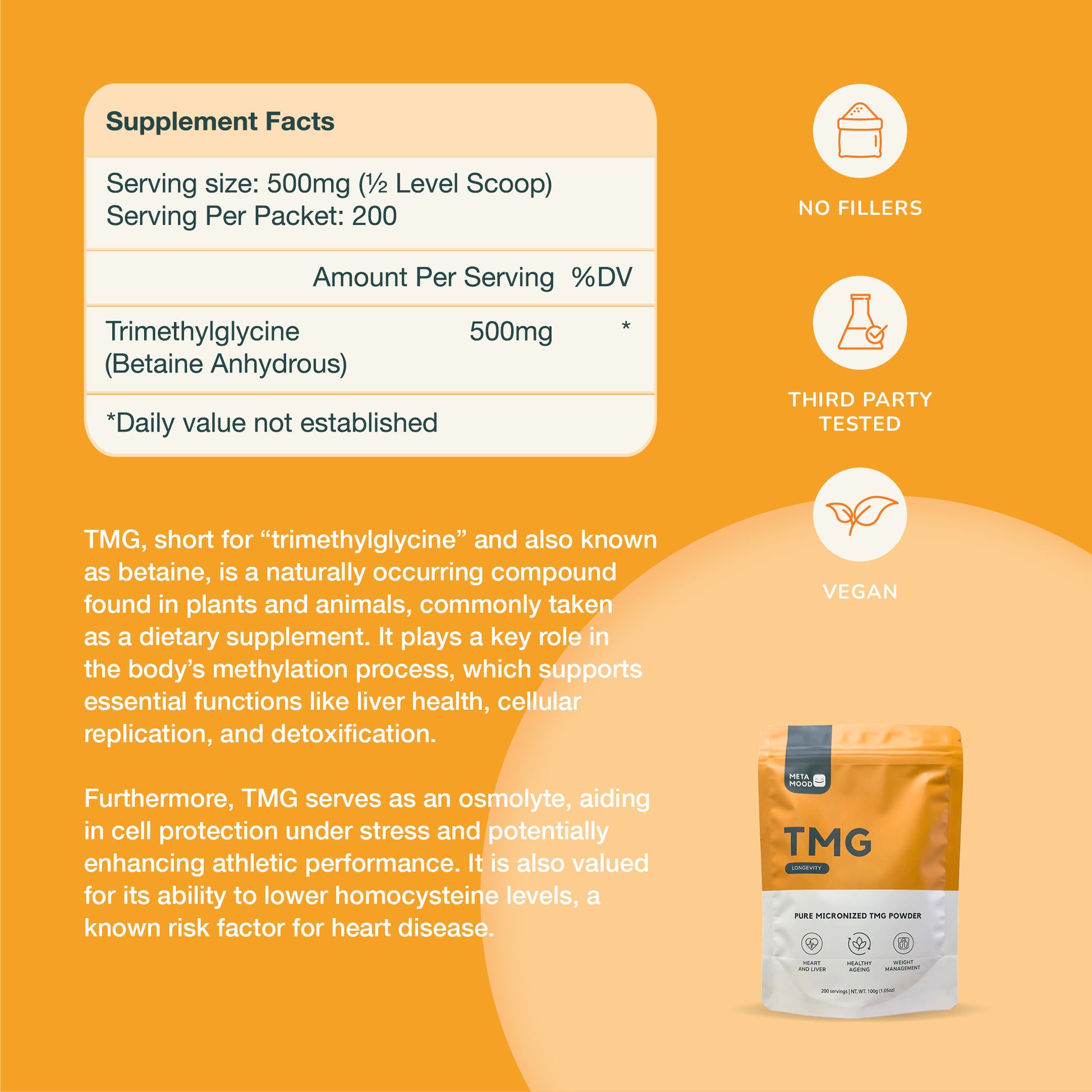TMG (100g)
TMG (100g)
500mg | 200 servings
200 days | $0.24/serving
- Clean methylation support
- Complements NMN, NAD⁺ and Creatine stacks
- Pure, no additives
Couldn't load pickup availability
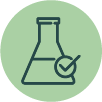 Lab tested
Lab tested
 Australian
Australian
 Free shipping
Free shipping
TMG supplement powder supports your body’s natural methylation process and much more. TMG is a nutrient found in beets and other plants. TMG may help with liver function, cellular health, and homocysteine metabolism. This pure powder is free from fillers and easy to mix into water or smoothies.
Benefits
Benefits
Ingredients
Ingredients
Additional information
Additional information
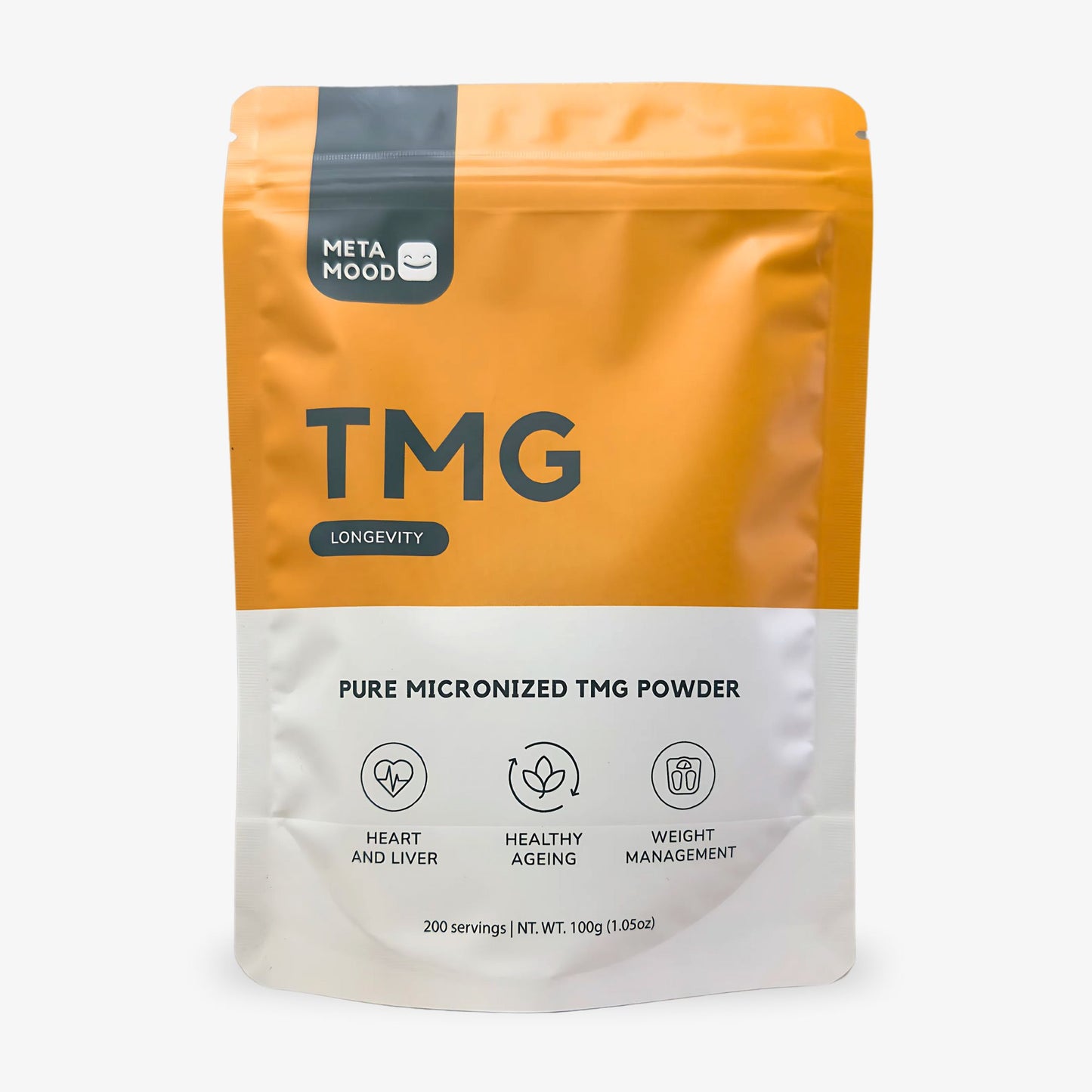
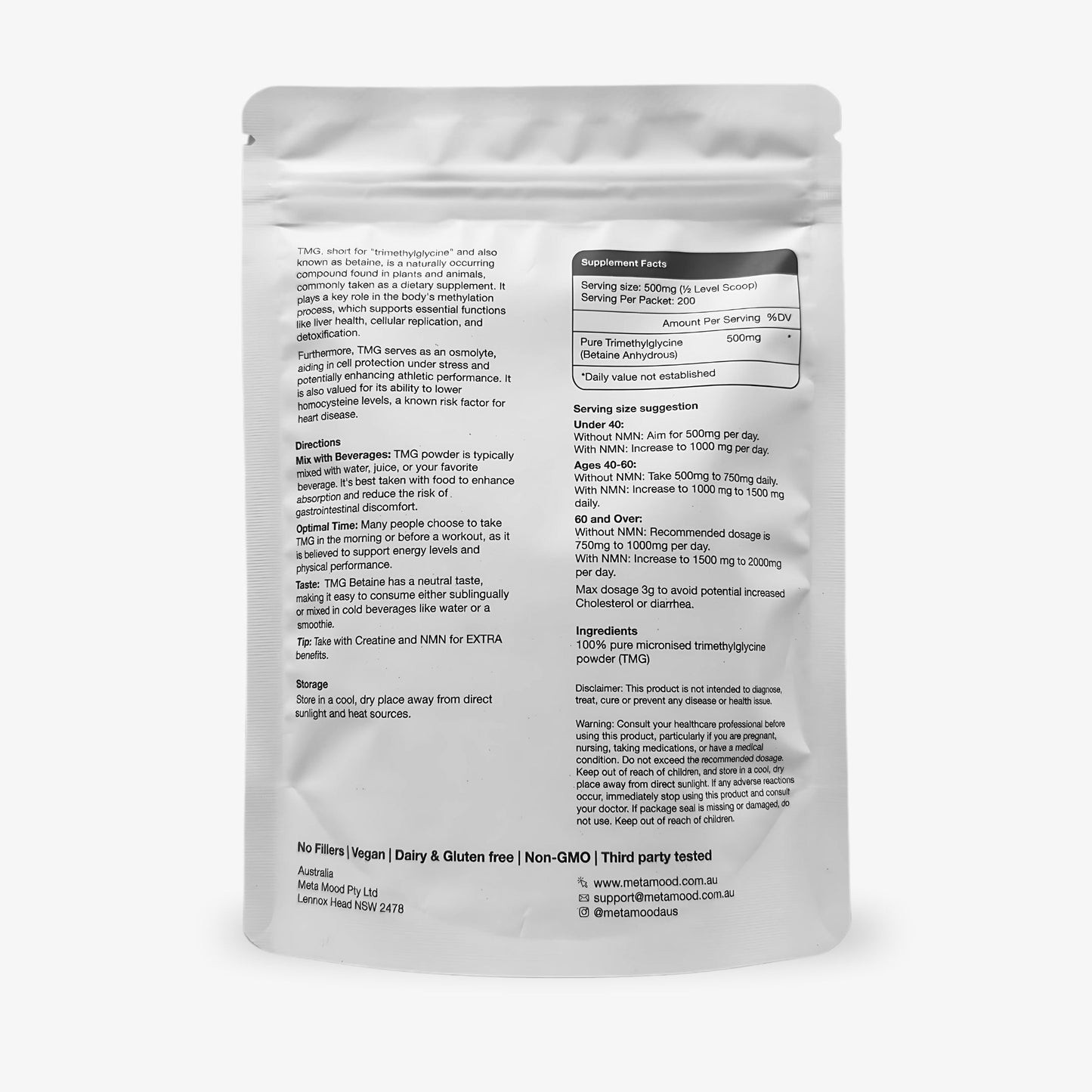
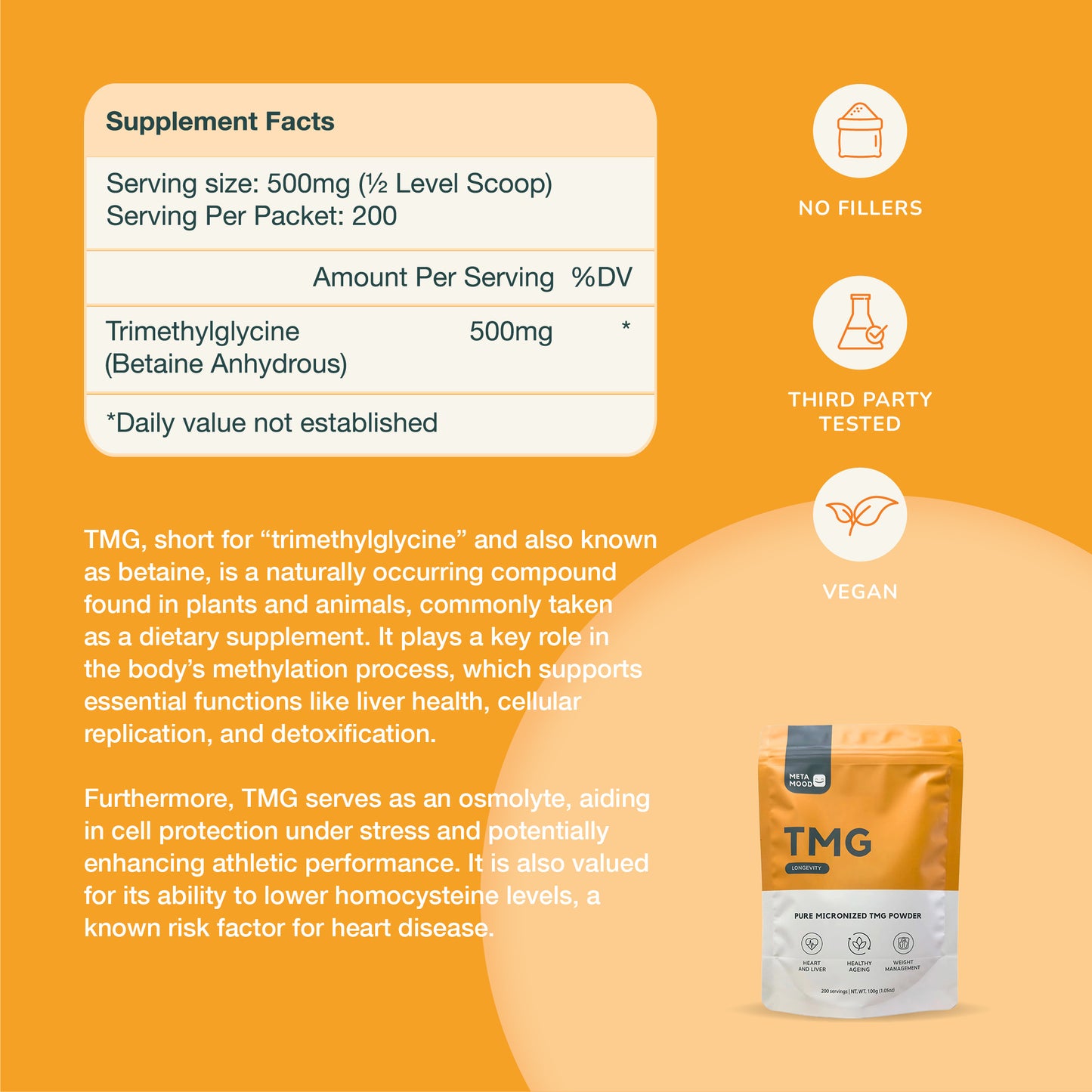
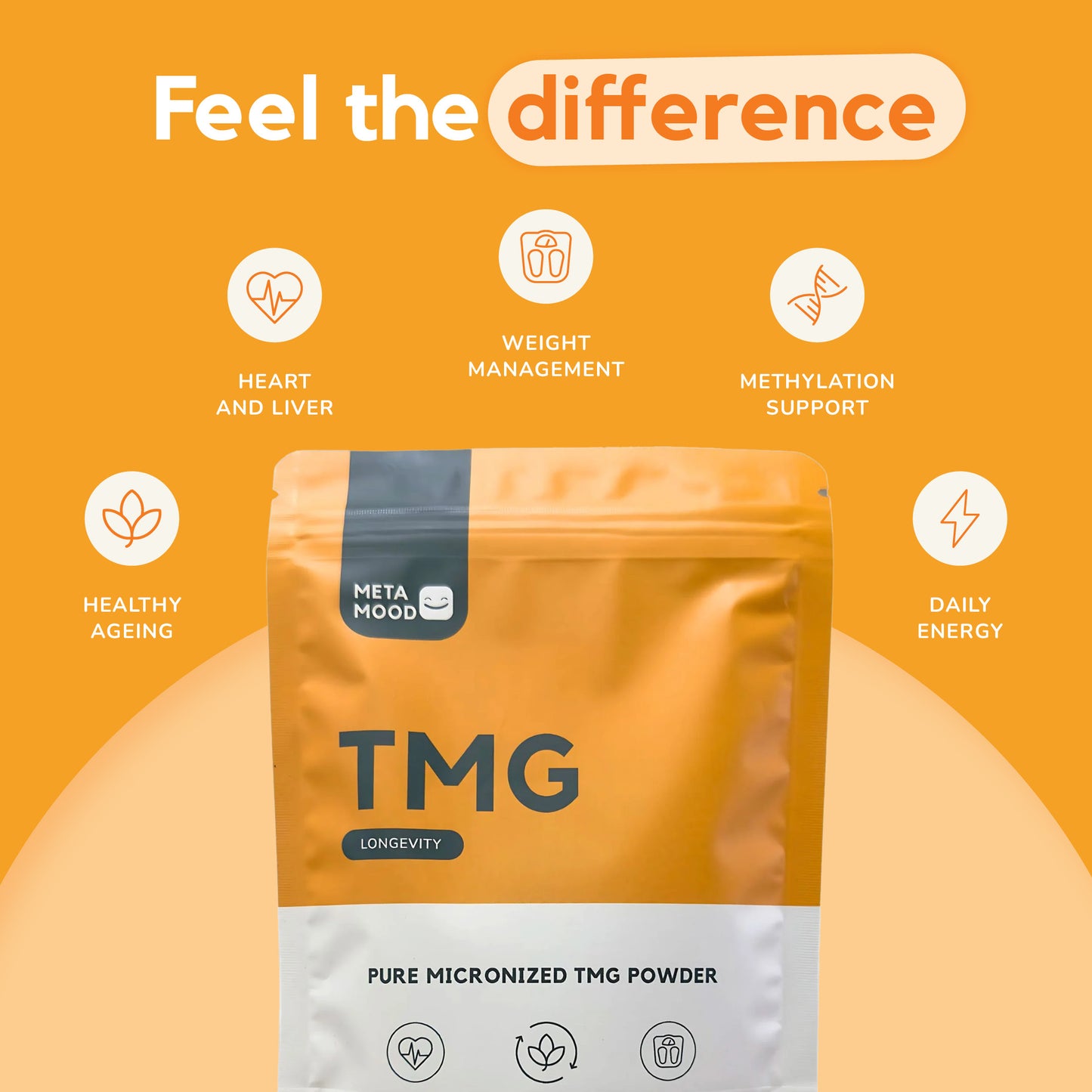

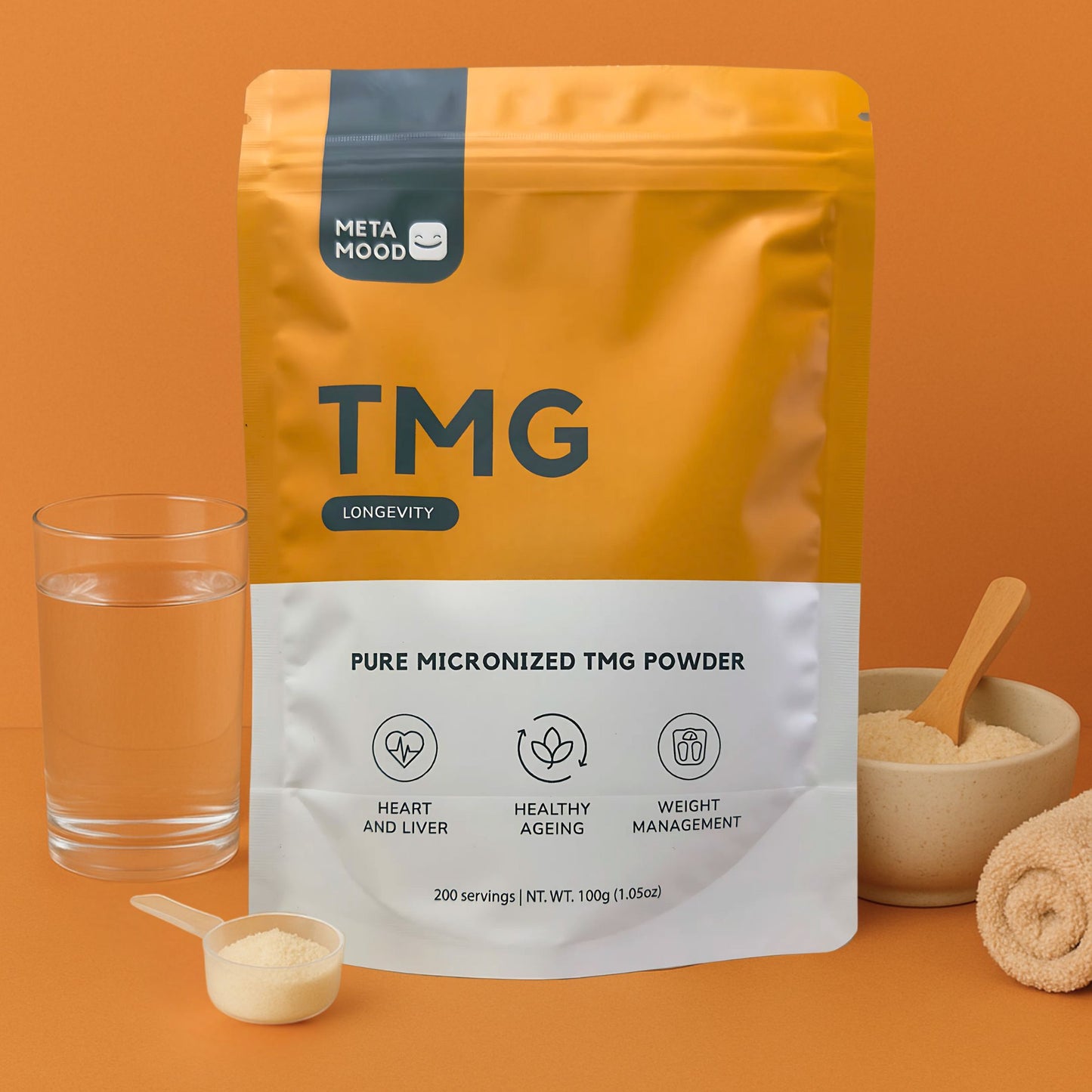
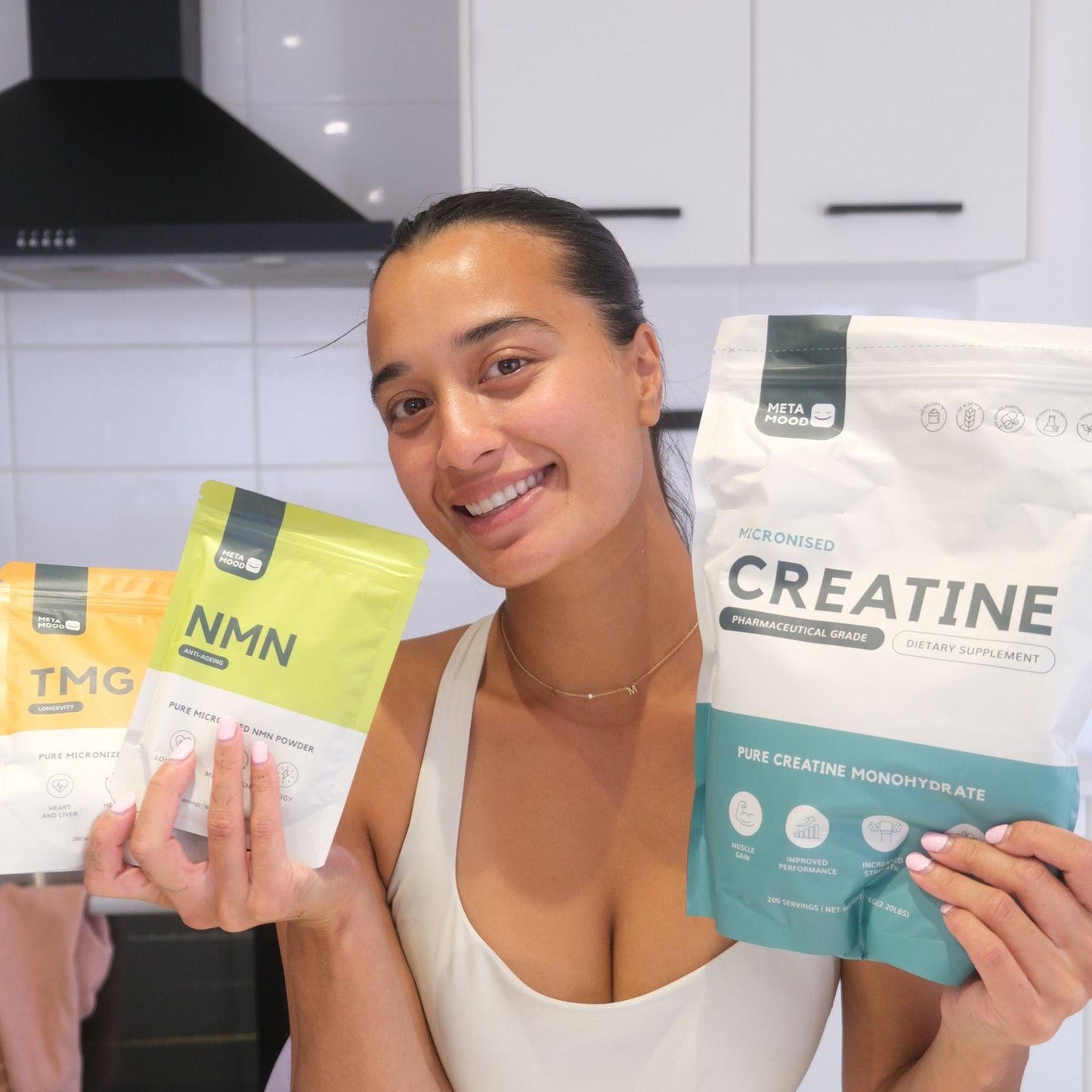
How TMG Works
TMG (Trimethylglycine) is a methyl donor, meaning it donates methyl groups to molecules in the body to facilitate chemical reactions. This is particularly important for converting homocysteine (an amino acid linked to cardiovascular issues when elevated) into methionine, another amino acid that supports the production of essential proteins and compounds like SAM-e (S-adenosylmethionine), which is vital for mood regulation and joint health.
-

Healthy Aging
-

Improved Performance
-

Weight Management
-

Improved Mood & Cognition
We're here to help
Frequently asked questions
What is TMG?
TMG, or Trimethylglycine, is a naturally occurring compound derived from foods like beets, spinach, and grains. It acts as a methyl donor, supporting processes such as detoxification, DNA repair, and cardiovascular health.
How does TMG work in the body?
TMG donates methyl groups to biochemical reactions, helping convert homocysteine into methionine. This supports balanced homocysteine levels, promotes cardiovascular health, aids liver function, and boosts the production of SAM-e, which contributes to mood and energy.
What are the health benefits of TMG?
- Supports cardiovascular health by regulating homocysteine levels.
- Enhances detoxification through liver support.
- Improves energy and mood by promoting SAM-e production.
- Contributes to DNA repair and overall cellular health.
Who should take TMG?
TMG is beneficial for:
- Individuals with high homocysteine levels.
- Those seeking cardiovascular or liver health support.
- People looking to enhance energy, focus, or mood.
- Athletes aiming to improve performance and recovery.
Is TMG the same as Betaine Anhydrous?
Yes, TMG and Betaine Anhydrous refer to the same compound. "Anhydrous" means it is in its pure, water-free form, which is commonly used in supplements.
How do I take TMG?
TMG powder is typically mixed with water, juice, or your favorite beverage. It's best taken with food to enhance absorption and reduce the risk of gastrointestinal discomfort.
What is the recommended dosage for TMG?
The typical dosage ranges from 500 mg to 2,000 mg daily, depending on your health goals. Always consult a healthcare provider for personalized recommendations.
Are there any side effects of TMG?
TMG is generally well-tolerated. Some individuals may experience mild side effects, such as stomach upset or nausea, especially when starting at higher doses. Starting with a lower dose and gradually increasing can help minimize this.
Can I take TMG with other supplements?
Yes, TMG is often combined with:
- NMN (Nicotinamide Mononucleotide): To support cellular energy production and healthy aging. TMG complements NMN by providing additional methylation support, which can help balance methyl donor usage during NAD+ synthesis.
- Creatine: For enhanced energy and performance benefits.
Always check with your healthcare provider to ensure compatibility with your regimen. - Folate and B12: To further support methylation.
Is TMG suitable for vegans and vegetarians?
Yes
Can pregnant or breastfeeding individuals take TMG?
While TMG is a natural compound, pregnant or breastfeeding individuals should consult a healthcare professional before starting any new supplement.
How long does it take to see results from TMG?
Many users report feeling improvements in energy, focus, and mood within a few weeks. Long-term benefits, such as balanced homocysteine levels, may take longer and depend on consistent use.



